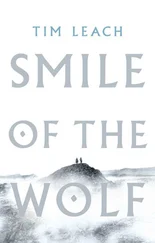Interrupting her thoughts, the trot of hooves and jingle of tack. A rider, dark-haired and swarthy, galloping up too fast to the herd, making the horses call and dance and scatter. One of Kai’s riders, the man called Gaevani – he offered her a mocking bow from the saddle but gave no word of greeting. He seemed content to watch the Roman work, a sour smile on his lips.
It was only when one of the horses danced up and feinted a kick, forcing Lucius to slip and stumble away on the frozen ground, that Gaevani broke the silence. A barking laugh, and he spoke to Arite: ‘The Red Crest knows his horses, I grant you that. But they know him, too. That stink of Rome. They’ll kill him one day.’
‘Perhaps,’ she answered. ‘Do you care to wager?’
‘I shall lay two flasks of wine against one of yours that he does not last the winter.’
‘Bargained and done,’ she said. ‘Is that why you come here, to gamble over another man’s life?’
‘Little enough to do in winter. I thought I’d take a look at your captive. I want him to teach me how his people die.’ The Roman started at the last word spoken, and Gaevani grinned. ‘He knows that word, does he? Die.’
‘He has learned a little of our speech,’ said Arite.
‘Well, he is learning the important words first.’ And Gaevani spoke again, but this time to Lucius, and in the hard and musical language of Rome.
‘What are you saying to him?’ she said.
‘I tell him of our wager.’
The Roman spoke now, slow and careful, as though still disbelieving that they might understand him.
‘He wants to know why he lives,’ said Gaevani.
‘Tell him that Laimei did not want to claim her third kill.’
‘He will not understand that.’
Arite shook her head. ‘He does not know of how a woman may leave the warband?’
‘They know nothing of our people. The Romans are fools. Amazing that they have conquered so much when they know so little.’
‘Tell him, then.’
And Gaevani spoke once more – stumbling from time to time over the unfamiliar language, his hands dancing in the air to mime the words he did not know. Arite felt the Roman’s eyes upon her, tracing the scars across her skin, the relics of wars long past. She tried to remember the three men she had killed to earn her freedom from the warband twenty years before, but they were faceless shadows now. Two Sarmatians and a Dacian, killed in feud and border raids. She had been free, then, to take a husband, raise children and leave the killing behind. A life that she had fought for and won, and yet now she had nothing left to show for it.
When Gaevani had finished, the Roman spoke again. Slow, halting words, as though dragged up from some place deep within him.
Gaevani smiled sourly. ‘Perhaps the Red Crest does have more courage than I thought.’
‘Why?’
‘He asks to be given a warrior’s death, and not live shamed as a captive.’
A heat under her skin, as though she were put to some torture of fire. And she was speaking then, so angry that the Roman, not understanding her words, took two paces back, raised his hands as if to ward away the stroke of a sword. ‘Tell him there is no glory in killing one who wishes to die. And that he shames himself, to seek such a death.’
Gaevani spoke – at length, more than seemed necessary to translate her words. The Roman gave her a wary nod, and returned to his careful work amongst the horses.
‘What more did you tell him?’ Arite said, breathing away her anger.
‘That you do not care to kill the helpless.’ He gave a shrug, palms turned up to the sky. ‘And that no doubt some fever or sickness will take him, and that shall be the end of it. He has no need to hurry towards death. They do not breed Romans strong enough to live on the plains.’
Once more, the sound of a horse approaching, and a half-stifled cry from Tomyris, watching them from the other side of the paddock. For it was Kai coming back, hunched over the saddle like a man wounded in battle, the horse wandering carelessly, barely guided. His daughter calling to him, but he gave no sign of hearing. He slipped from his horse and let it wander back to the herd unguided, and returned to the darkness of the tented wagon.
Gaevani spoke once more, his eyes on Kai’s tent. ‘We all must live with our shame, no? But they did not breed him strong enough either, I think,’ he said. And Arite thought that the other man spoke not in scorn, nor in the bitter tone of revenge, but perhaps with a certain quiet regret.
The heavy snows came. Perhaps a blessing from some kindly god, for even the Romans would not march in that weather. Or a curse from some trickster deity, sealing the nomads in place, forcing them to sit and wait. And to starve. For the Sarmatians only knew plenty and famine. Even with so many left dead upon the ice of the Danu, there was not enough for all to eat. Some had come to that great campground with their winter herds, some with only a few sacks of grain. And so it was a time of waiting, of whispering in the dark, of creeping slow death.
In the days that followed, Arite returned again and again to Kai and Tomyris, bringing what food she could. She watched Tomyris’s eyes growing large in her head, impossibly large, as she grew thinner and thinner. With Kai, she saw the hollowing of the ribs, and, worse yet, the breaking of the will. Of what had passed between him and Laimei, he would not speak.
Piece by piece, she traded away the iron that Kai had brought back from the river. She unlinked the mail shirt and traded its rings for haunches of meat and bowls of blood, gave away the iron-headed Roman spear for honey and milk when Tomyris took a winter fever. It was dangerous work, for out in the camp there were battles between the half-starved and the starving. Sometimes it would be just a pair of men, sometimes a sudden brawl involving half a hundred. The captains would come to end the squabbles, but sometimes they were too slow – the flicker flash of a knife, a gurgling whisper, and a corpse was left laid upon the ground when the bands of warriors were separated, its fresh wounds steaming into the air. One less warrior to face the Romans, throat slit for coveting a rotten scrap of meat from another man.
When the last of the iron was gone, and the winter season was still but half spent, a clearer day came. Brilliant light in the sky, falling through the scattered clouds like golden arrowheads, and no murderous wind. A day with all the feeling of an omen about it, and so Arite took her horse from the herd, and ventured further than she had before. Out beyond where the tented wagons huddled together, past the chieftain’s fire.
All about her, the camp was a place of stillness – the occasional scurrying shadow moving from tent to tent. Figures huddled besides cooking fires, shivering hands outstretched to the flames. It was only at one corner of the campground that one always saw movement. Horses and riders, dressed for war. A great circle scratched into the snow, the ground within it marked and cleared, scored deep with the tracks of horses, the imprints of men thrown down, scattered with flecks of horn and wood from where weapon struck armour. And there the riders moving in the same familiar patterns, over and over and again. The mark of madness, or of desperation.
As Arite drew close, a snap of a lance passed through the air, followed by the wet fall of a body into mud as one rider was knocked from his horse by a blunted spear. Fresh red tassels ran from that weapon, for it was Laimei who turned and circled the horse back to where a boy lay in the mud, struggling to stand in the heavy horseman’s armour. With another tap of the lance she put him on his back once more.
‘Stay down,’ she said. ‘You would be dead from that stroke, and dead men do not rise.’ She looked at the other riders in the circle, who hooted and laughed at the boy upon the ground. ‘Who is next?’
Читать дальше
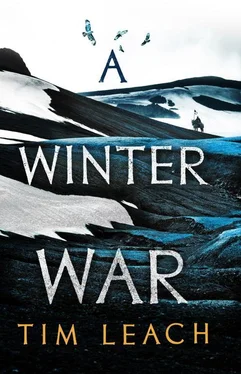
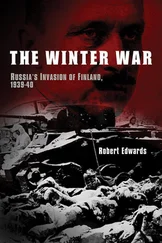

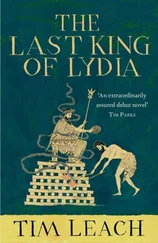
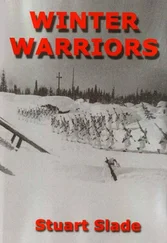
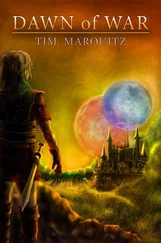

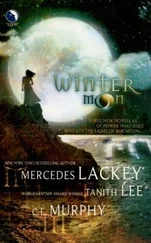
![Стюарт Слейд - Воины зимы [Winter Warriors ru]](/books/401383/styuart-slejd-voiny-zimy-winter-warriors-ru-thumb.webp)
